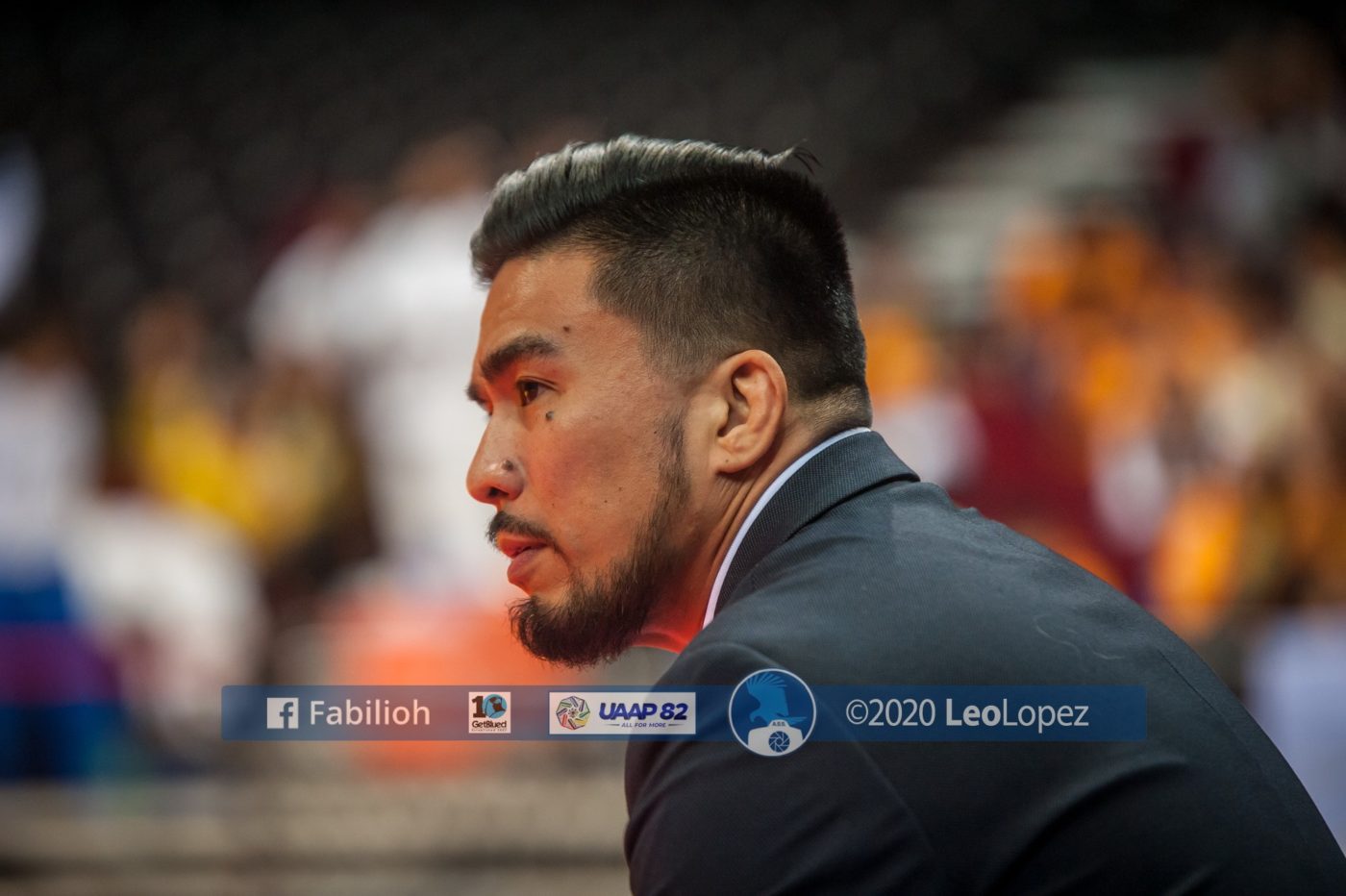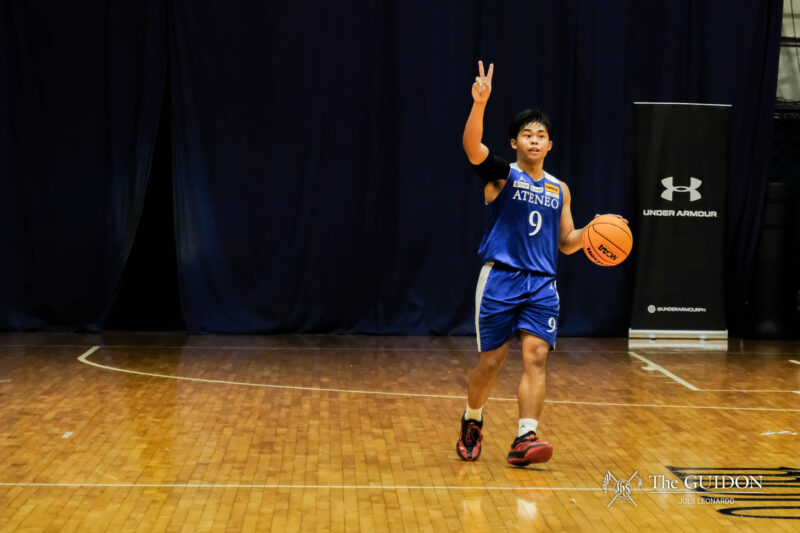Coaches’ Corner is a feature series that highlights head coaches of Ateneo sports teams along with the significant work they do in bringing out the best of teams and athletes. In this second installment, we delve into how Coach Ali has adapted his approach on instilling the values martial arts brings—on and off the mats.
As the coach of the Ateneo Judo Association (AJA), Coach Alexander “Ali” Sulit is not only tasked with teaching his athletes proper techniques to excel in judo, but is equally crucial in passing down life lessons that are valuable outside the dojo.
From his days as a judoka on the mats to being a head coach on the sidelines, Coach Ali’s career has now reached new heights being the president of the Philippine Judo Federation (PJF). Despite everything that he has experienced, Coach Ali has never forgotten to give back to the sport that has molded him into the person that he is today.
Multi-awarded practitioner
It all started from his days as a competitor where his résumé was unmatched. To name a few of his accolades, Coach Ali placed second in the 1998 Southeast Asian Judo Championships, became a five-time heavyweight division champion in the National Judo Championships, and clinched two gold medals in the Asian Championships.
Two years after finishing his undergraduate degree in Ateneo, Coach Ali was offered the head coaching position for the AJA after their former sensei—the late Roberto Ramas, PhD—had to leave the team due to commitments with another university. While taking his masteral degree in 1998, Coach Ali led Ateneo to its first-ever judo title in the University Athletic Association of the Philippines (UAAP) as a playing coach for the Blue Eagles. Upon winning the title, the University Athletics Office was impressed by Coach Ali’s maturity and leadership that they made him the program head of Ateneo judo.
Now serving for over 20 years as the program’s head coach and director across all divisions, Coach Ali has spearheaded both the Boys’ and Men’s squads to six and eight UAAP championships, respectively. Both divisions were highlighted by unprecedented runs with the former’s four-peat dynasty from Seasons 71 to 74 and the latter’s three-peat reign from Seasons 71 to 73. According to Coach Ali, his continued service to the AJA is a way for him to pay tribute to his former sensei. “It’s something that he left to me, and I [choose] to honor him up until today. This is one way to honor him because he did a lot for me by introducing me to this art,” Coach Ali shared.
On top of Coach Ali’s obligations as the head coach of the Ateneo judo varsity team, he was recently elected to become the president of the PJF last December 2021. Initially hesitant to accept the nomination, Coach Ali declined the offer three times as he already had another responsibility as the head coach of the national Jiu-jitsu team.
However, upon examining the landscape and identifying the improvements that he could administer within the Philippine judo scene, Coach Ali had a change of heart. Sensei, as many of his students would call him, eventually accepted the nomination and ran unopposed to become the president of the PJF, forgoing his commitment to the national Jiu-jitsu team in the process. Ultimately for him, it came down once more to his goal of giving back to his first love: Judo. “It put food on the table, allowed me to raise my family, so Judo is in my soul. I figured at my age, it’s time to give back,” shared the veteran judoka.
In accepting the position, the 46-year old Sensei saw how he could be a man of service. “That’s where pumasok yung pagka-Atenista natin (That’s where our Atenean identity comes in). If we can be of service, then why not? And here I tell you it’s purely service,” said Coach Ali recalling the Atenean value of magis, the Jesuit ideology pertaining to doing more not just for one’s self, but for others especially.
Keeping the tradition alive
Trying his best to do more as the president of the PJF and the head coach for the AJA, Coach Ali has been finding ways to adjust to the online setting. According to him, it has been very difficult and near impossible for the judo team to train given the nature of the sport where a partner is essential to practice. “Unlike other martial arts [where] you can do form practices, in judo it’s not the same. You have to have a partner,” said Coach Ali.
In lieu of face-to-face training, the Ateneo judo varsity team has been conducting online training by performing cardio exercises, forming competition strategies, and learning the technical aspects of the sport. In conducting these sessions, Coach Ali stresses the importance of knowledge in the technicalities of the sport. For him, understanding the fundamentals of the sport allows his students to further adapt to any style or move that their opponents may use against them.
“When I do the classroom sessions online, I maximize it by being really technical about it,” Coach Ali mentioned. “Kung ano yung galing nila sa galaw nila (However good they are with their movement) should be matched with how smart they are also.”
Nevertheless, Coach Ali maintains the drive and eagerness to impart wisdom onto his students regardless of the setting may it be online or on-site. For him, the most important trait that any coach should possess would be empathy. Coach Ali reiterates the importance for coaches to incorporate the Jesuit teaching of cura personalis, the value of caring for a person’s entire well-being–physically, mentally, and spiritually. According to Sensei, it is crucial for a coach to know where an athlete is coming from. “Once you understand their motivations, then you can use those little extra things that sparks something in them to do better.”
Gearing up for the future
Despite the uncertainties that remain due to the pandemic, Coach Ali still remains optimistic with his plans for the future. For the PJF, Coach Ali plans on implementing a structure to distinguish the top judokas in the country. To do this, he intends to establish a point system and host annual regional judo championships around the Philippines, in which the winners would qualify for the national championships. “[In doing so], what you’ll have is a national championship only represented by the best of the best.”
Regarding the AJA, Coach Ali intends on producing more judo national team members from the Blue and White. “Before the pandemic, [we saw] members of the team na natatalo nila yung mga nasa (who beat members of the) national team,” mentioned Coach Ali. For him, this is a testament to how Ateneo judo has developed and improved over the years. With his continued guidance, Coach Ali intends to see more Ateneans excel not only in the UAAP, but as members of the national team as well.
As for Philippine judo’s continued development in the country, Coach Ali assures that it will keep on improving. “Something that we do [in the] judo program is [that] we don’t settle. If we find ways of doing things better, then we will. We evolve.”







